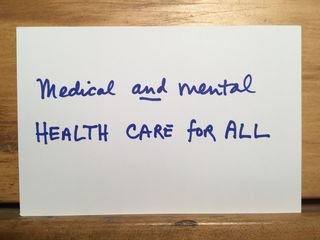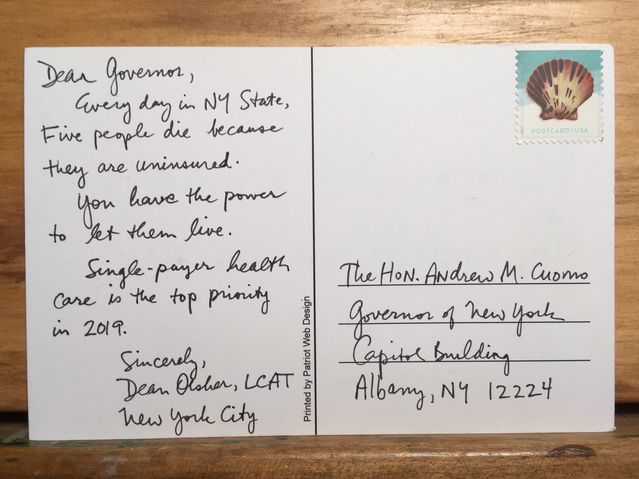
Health
A Cure for Outrage Fatigue
Engaging constructively with the world is essential for mental health.
Posted December 28, 2018
“I can't go on, I'll go on.” —Samuel Beckett, The Unnamable
It’s always revealing when a new word or expression becomes popular. It says something about our time that people are talking more and more about outrage fatigue. Every day we read news reports of shocking violations of social and political norms: our culture has come to accept the routine murder children in schools; the timeline for the planet’s ability to sustain human life keeps getting shortened; government operates with flagrant disregard for the will of the majority. People become overwhelmed and want to retreat from public life, and thanks to Netflix, escapism is a 24/7 option.
This response is understandable. But I believe it does damage to our mental health.
Outrage fatigue is a specific form of learned helplessness. When people are subjected to terrible things over which they have no control, they give up trying—even when they eventually face challenges that they can control. Learned helplessness leads to depression.
The cure is simple. Take action. Do anything, no matter how small. Even the tiniest act can make a difference to your personal wellbeing.

I’ll give you an example of my way of choosing an alternative to outrage fatigue: I write postcards to politicians.
In New York, where I live, the make-up of the state legislature changed significantly in the November 2018 election. For the first time, there may be enough political will to pass a universal health care bill. But the governor has balked. In a debate he said that single-payer health care is “hard.” My feeling is this: You know what? Governing is hard. So I wrote him a postcard.

“Dear Governor, Every day in NY State, five people die because they are uninsured. You have the power to let them live. Single-payer health care is the top priority in 2019.”
I will be writing similar cards to each member of the state legislature in the weeks ahead.
Here’s what I’ve noticed about writing postcards by hand: It’s a fantastic way to slow down. I’m no visual artist, but taking the time and care to write my message legibly feels gratifying. It has the same effect on my state of mind as meditating. When I'm done I feel centered, calm.
You may dismiss this as a quixotic act. I reply: You say that as if it’s a bad thing! What matters is the fact of doing it. Perhaps writing postcards is not for you. No problem! The good news is that there are endless ways of engaging constructively with the world. One of the main tasks of therapy is to help you discover whatever form of engagement fits best with who you are.
The lesson taught by the existential psychotherapist Viktor Frankl is that humans were not put on this earth to be happy, we are here to create meaning for our lives. Not to figure it out, but to make it, because it is not handed down to us from a mountaintop. Life is inherently meaningless. People often despair when they come to this realization. We have the choice, though, to see it as liberating. The meaning of life is found in the small actions we take every day.
References
Frankl, V. (2006). Man's Search for Meaning. Boston: Beacon Press.

